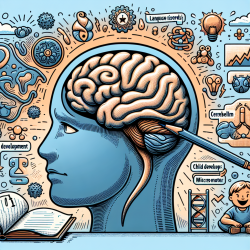Introduction
Adolescence is a critical period for neurocognitive development, where sleep plays a vital role in shaping mental health outcomes. Recent research highlights the significant impact of sleep disruptions on cognitive functions and their relationship to psychosis vulnerability. This blog explores the findings of a longitudinal cohort study that investigates the neurocognitive consequences of adolescent sleep disruptions and offers insights for practitioners seeking to enhance their skills and understanding in this area.
The Study: Sleep Disruptions and Psychosis Risk
The study, conducted by Ouellet et al., involved a cohort of 3,801 high school students from Montreal, Canada, who were assessed annually over five years. The research aimed to examine the role of cognition as a mediator between sleep disruptions and psychosis risk, focusing on key cognitive functions such as inhibition, working memory, and perceptual reasoning.
Key Findings
- Inhibition as a Mediator: The study found that response inhibition plays a crucial role in mediating the relationship between sleep disruptions and psychotic-like experiences (PLEs). Poor sleep was associated with impairments in inhibitory control, which in turn increased the frequency of PLEs.
- Working Memory and PLEs: Spatial working memory deficits were linked to a higher frequency of PLEs both concurrently and in subsequent years. However, these deficits were not directly associated with sleep disturbances.
- No Significant Association: The study did not find significant associations between sleep disruptions and other cognitive domains like delayed recall or perceptual reasoning at the individual level.
Implications for Practitioners
For practitioners working with adolescents, these findings underscore the importance of addressing sleep issues as part of a comprehensive approach to mental health care. Here are some actionable steps practitioners can take:
- Screen for Sleep Issues: Incorporate sleep assessments into routine evaluations to identify potential disruptions early on.
- Promote Healthy Sleep Habits: Educate adolescents and their families about the importance of good sleep hygiene, including consistent sleep schedules and minimizing screen time before bed.
- Integrate Cognitive Interventions: Consider cognitive remediation strategies that focus on enhancing inhibitory control and working memory, potentially reducing the risk of psychosis.
Encouraging Further Research
While this study provides valuable insights, it also opens the door for further research. Practitioners are encouraged to explore additional factors that may influence the relationship between sleep and mental health, such as environmental influences and genetic predispositions. Collaborative efforts between researchers and clinicians can lead to more effective interventions and improved outcomes for adolescents.
Conclusion
In conclusion, the study highlights the significant impact of sleep disruptions on adolescent cognitive functions and their relationship to psychosis risk. By understanding and addressing these connections, practitioners can play a pivotal role in promoting better mental health outcomes for young people. To read the original research paper, please follow this link: Neurocognitive consequences of adolescent sleep disruptions and their relationship to psychosis vulnerability: a longitudinal cohort study.










